Giardia are parasites that regularly occur in cats (and dogs) and can also affect humans. This is very rare and has only been described a few times. Giardia is a protozoan parasite (flagellate) that can cause diarrhea. Giardia is relatively harmless, diarrhea is particularly annoying and rarely life-threatening. Giardia is becoming more and more common these days, hence this article.
How does giardia develop in cats?
As previously mentioned, Giardia is a flagellate. Cats contract Giardia by ingesting the parasite's eggs. There are two parasites in an egg. Once the egg arrives in the intestine, the egg wall breaks down and the parasites are released. An infected cat excretes the Giardia in the faeces. After some time away from the cat, the eggs can be picked up again. The eggs can survive for several months outside the cat.
Cats become infected through the faeces of other cats, for example on lawns or in gardens. Giardia can also move through shoes or clothing very easily, allowing it to infect indoor cats as well. Giardia is very easily transmitted and is found almost everywhere in the environment.
How do I recognize Giardia in cats?
Giardia is a parasite that mainly causes diarrhea. This diarrhea can be very different. Sometimes it's really thin diarrhea, but mostly it's a little firmer. Your cat may need to defecate more frequently and will also have more stools at a time, the stools may be a bit muddy. There is often some mucus (there may also be some blood). Most cats don't get tired of it. When your cat has giardia, they are often lethargic and have a fever. Your cat may also vomit.
As previously mentioned, Giardia is everywhere in the area. There are also animals that carry the parasite and excrete it, but are not ill themselves. Young animals and animals with a weakened immune system in particular contract Giardia.
How Is Giardia In Cats Diagnosed?
The diagnosis is easy to make. The diagnosis is made by a stool examination. It is best to collect some stool for 3 days. This is necessary because giardia is not shed every day. Luckily, all of this is allowed in the same jar (your vet has special jars for this). Diagnosis can then be made quickly provided your veterinarian has the necessary test. Your vet may also take a sample directly from your cat's anus. A negative result is less reliable, but a positive result means your cat definitely has giardia (and will keep you from collecting poo for three days).
What is the treatment for giardia in cats?
It is very difficult to get rid of Giardia completely. This is because the parasite is found everywhere in the environment. Fortunately, a sick cat can be treated well. As a rule, a special course of 3 days is sufficient. Sometimes the course has to be repeated after 1 week. If your cat is severely ill with Giardia, your vet may decide to give antibiotics. These two active ingredients then reinforce each other's effects. In addition, it is very important to clean your cat's environment well. As already mentioned, Giardia cannot be completely eliminated from the environment. However, the more parasites you can kill, the less likely your cat will be reinfected after a few days.
Baskets, carpets and the like must be washed in the washing machine at high temperatures. Everything that cannot be put in the washing machine must be cleaned thoroughly. You can get a special cleaning agent from your vet that is very effective against Giardia (the agent is called Hibicet). This is a pink soap that you can dissolve in water. You can also use this soapy water to clean your entire house (or at least the rooms where your cat hangs out). Bathing your cat makes little sense and will just be a stressful activity. In dogs, washing your dog with shampoo appears to have an effect in treating Giardia!
This text was translated by a translation machine
 Horse Pharmacy
Horse Pharmacy Rugs
Rugs Care
Care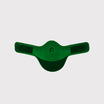 Saddle and Attachments
Saddle and Attachments Leg Protection
Leg Protection Bridles
Bridles Feed
Feed Fly Masks
Fly Masks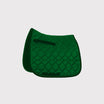 Saddle Pads
Saddle Pads Headcollars and Ropes
Headcollars and Ropes Bits
Bits Other Disciplines
Other Disciplines Reins and Auxiliary Reins
Reins and Auxiliary Reins Clipping
Clipping Western
Western Eventing
Eventing Foals
Foals Reflection
Reflection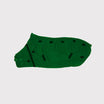 Therapy Products
Therapy Products Boots and Shoes
Boots and Shoes Breeches and Belts
Breeches and Belts Tops
Tops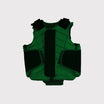 Safety
Safety Competition
Competition Heated Clothing
Heated Clothing Gloves
Gloves Socks
Socks Spurs and Attachments
Spurs and Attachments Technology
Technology Whips
Whips Gifts
Gifts Casual Wear
Casual Wear Underwear
Underwear Rider Pharmacy
Rider Pharmacy Bags
Bags Books
Books Laundry supplies
Laundry supplies Jewelry
Jewelry Feed and Waterbowls
Feed and Waterbowls Equipment
Equipment Tack Room
Tack Room Pest Control
Pest Control Arena
Arena Horse Toys
Horse Toys Wheelbarrows
Wheelbarrows Yard
Yard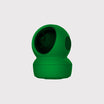 Surveillance
Surveillance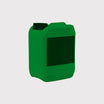 Disinfect
Disinfect Washing Area
Washing Area Lighting
Lighting Horse Pasture
Horse Pasture Current Conductors
Current Conductors Pole
Pole Insulators
Insulators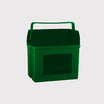 Energisers
Energisers Gate Handles
Gate Handles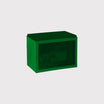 Batteries and Accumulator
Batteries and Accumulator Nets
Nets Grounding
Grounding Tools
Tools Fencing Security
Fencing Security Wolf Defense
Wolf Defense Fencing Sets
Fencing Sets Fence locks
Fence locks Dogs
Dogs Cats
Cats Rodents
Rodents Dogs Pharmacy
Dogs Pharmacy Cats Pharmacy
Cats Pharmacy Rodents Pharmacy
Rodents Pharmacy Cattle Pharmacy
Cattle Pharmacy Poultry Pharmacy
Poultry Pharmacy Veterinary Supplies
Veterinary Supplies Cattle
Cattle Sheep and Goats
Sheep and Goats Poultry
Poultry Heat Lamps
Heat Lamps Calves
Calves Marking
Marking Halters
Halters